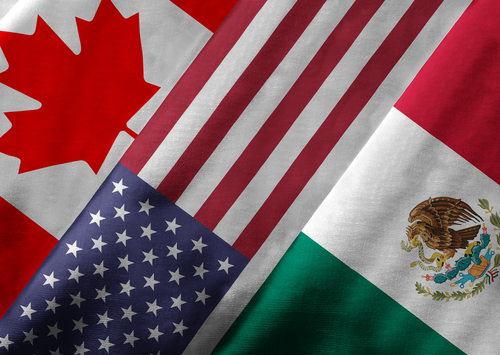
In testimony before the U.S. International Trade Commission, the Motor & Equipment Manufacturers Association said that while it agrees with the United States-Mexico-Canada Agreement (USMCA), there are some concerns still to be dealt with.
MEMA Senior Vice President of Government Affairs Ann Wilson said during a public hearing that the motor vehicle industry plays a significant role in the U.S. economy and that getting the basics of trade right is crucial to the industry’s success and the country’s success.
“[We] need to get the basics of trade right by opening foreign markets to U.S. exports and investment, while maintaining reciprocity,” Wilson said. “These basic principles of free trade matter, for global growth, consumer demand, and continued U.S. leadership. However, the open question is whether the U.S. will keep the borders open enough for trade, immigration, and innovation that allows us to maintain our global leadership in the motor vehicle sector and in manufacturing across the board.”
While Wilson said that MEMA supported USMCA, just as it had NAFTA, there were still some issues to be worked out.
“MEMA appreciates the bipartisan commitment and efforts of the Office of the United States Trade Representative (USTR) as well as the members of Senate Finance and House Ways and Means Committees commitment to make the merchandise processing fee (MPF) fully refundable after importation of products into the United States,” Wilson said in written testimony. “This fee was an inadvertent error in the drafting of the UMSCA implementing bill that all the parties have promised to fix. Not having this refund available costs MEMA members tens of millions of dollars annually… It also relieves another significant financial burden on our companies at a time of liquidity challenges, falling profits, health and economic disruptions, and uncertainty.”
Wilson also said it was important to adhere to trade agreements.
“The U.S. must be careful to respect the tri-national values of the USMCA, as well as bilateral or multilateral rules of all free trade agreements. For example, this summer, the U.S. should not have undertaken problematic new Section 232 tariffs against Canada on aluminum imports or have instituted later-managed trade quotas on Canadian aluminum or Mexican steel. If there are surge issues to be adjudicated, they should be pursued through appropriate multilateral dispute resolution channels,” she said.
Additionally, she said, tariffs issued by the U.S. over the past few years have hindered job growth and economic development.